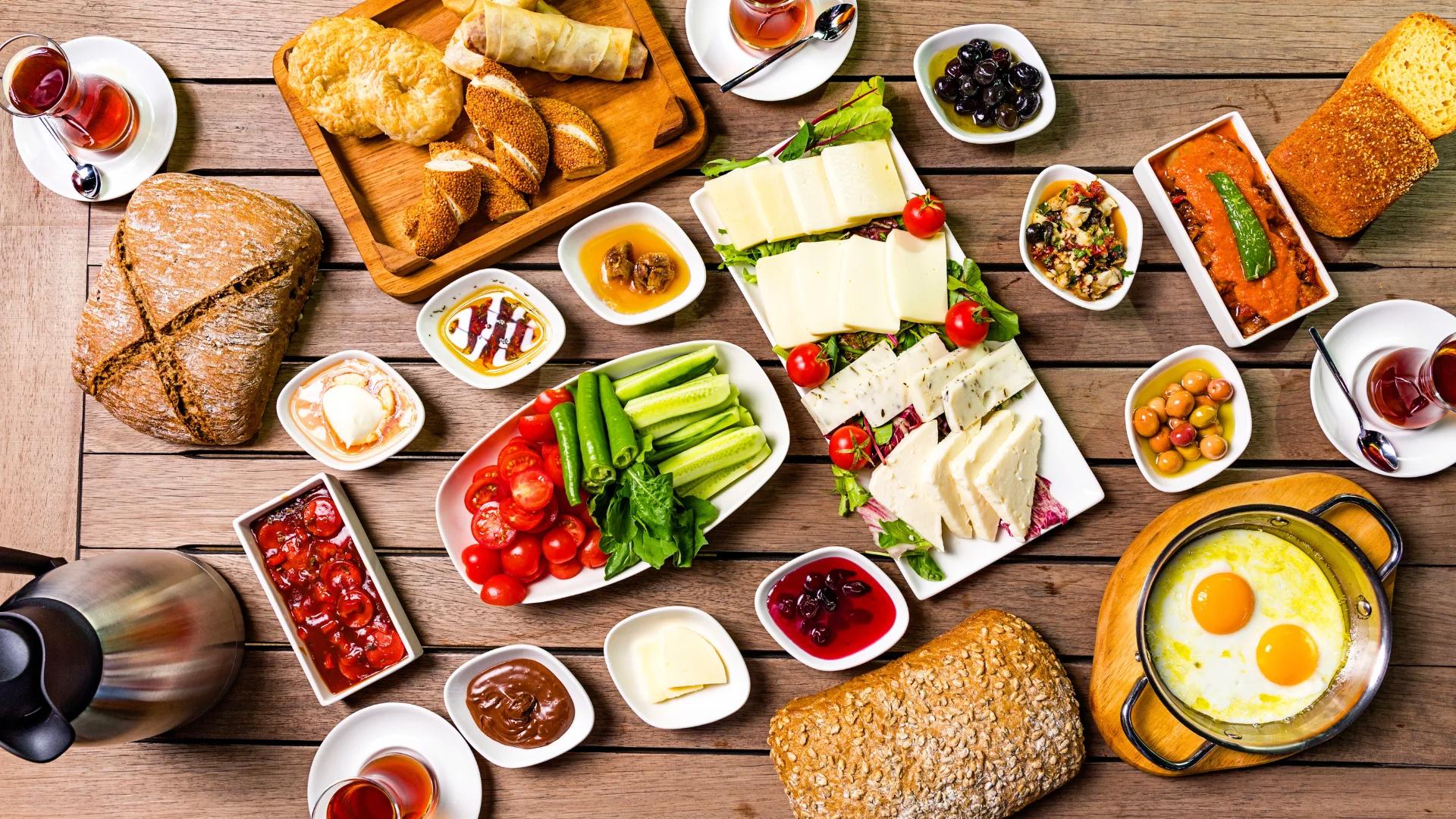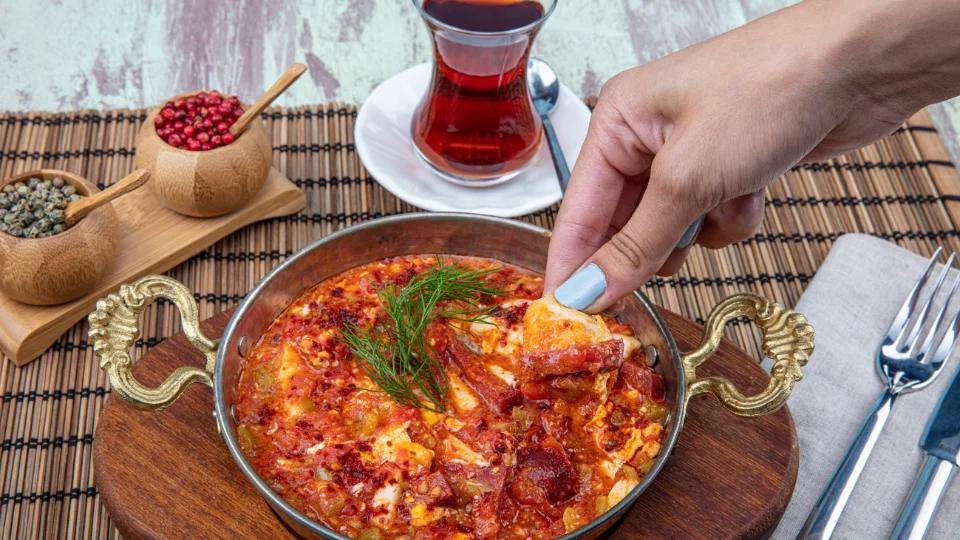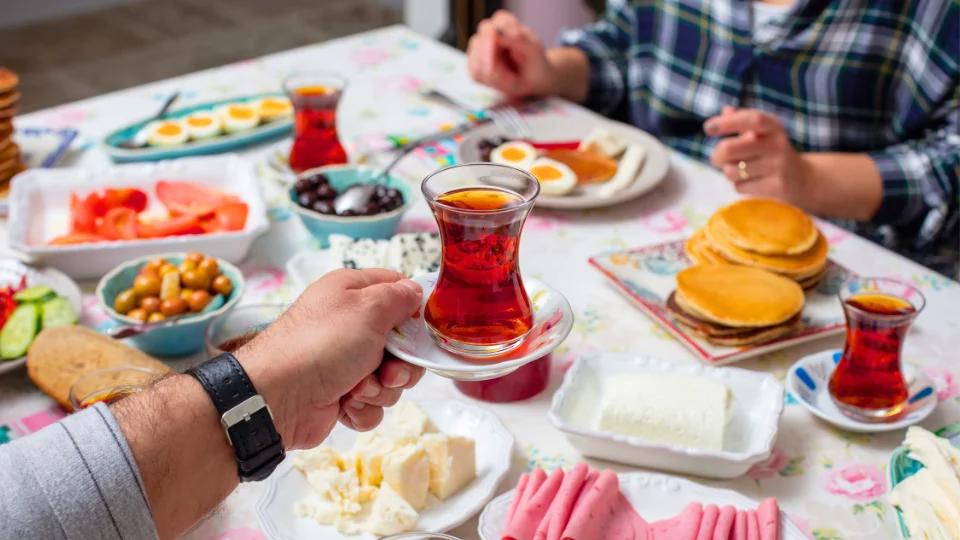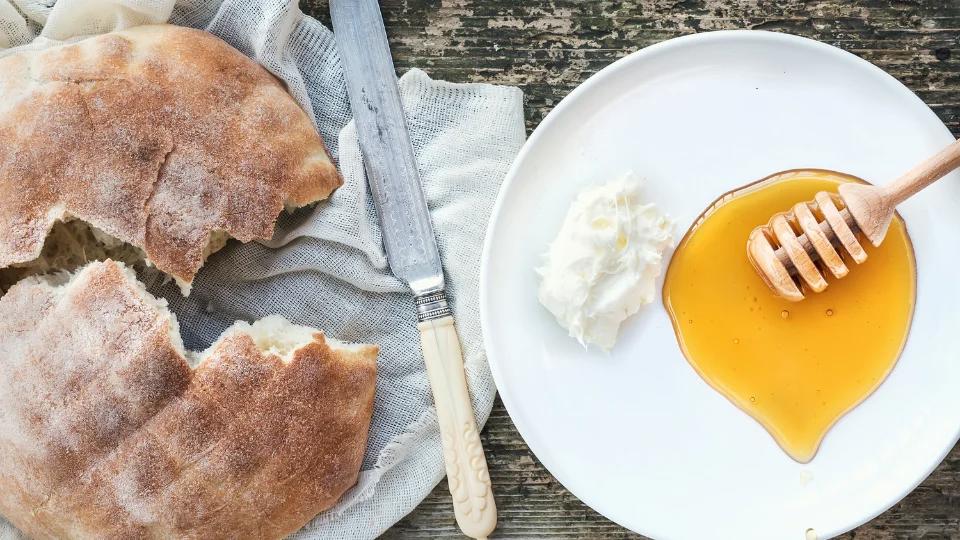
How to Get the Real Turkish Breakfast – Not the Tourist One
Many visitors to Turkey imagine a Turkish breakfast as a table full of cheese, olives, bread, and tea. They see it on social media and expect the same when they arrive. In tourist areas, this breakfast is often simplified or adjusted for foreign tastes. Prices can also be higher than usual. If you want the real experience, you need to know how locals eat and where they go.

What Is a Real Turkish Breakfast?
A traditional Turkish breakfast, called kahvalti, is a set of small dishes served together. It usually includes:
- Fresh bread from a local bakery
- White cheese, kasar cheese, and sometimes goat cheese
- Black and green olives
- Fresh tomatoes, cucumbers, and green herbs
- Honey served with thick cream called kaymak
- Fruit jams and preserves
- Menemen – scrambled eggs with tomatoes and peppers
- Sucuklu yumurta – eggs with spicy sausage
- Unlimited small glasses of hot tea
For locals, breakfast is more than eating. It is a way to start the day slowly and share time with family or friends. You can join a Istanbul Private Food Tasting Tour to experience this full variety with fresh products from the market.

Where Do Locals Go for Breakfast?
Tourist restaurants may serve large portions but often miss the true taste. Locals choose simple family-run cafes, tea gardens, or countryside breakfast houses.
In Istanbul, popular local spots are in Kadikoy, Besiktas, and Cihangir. In the countryside, breakfast places near Sapanca or Bursa serve food made from local ingredients. On the coast, towns in the Aegean and Mediterranean regions have tea gardens by the sea.
If you are visiting Cappadocia, you can combine a 1-Day Private Cappadocia Tour from Istanbul and Hot Air Balloon Ride to enjoy views and local flavors.
How to Avoid the Tourist Version?
Choose places that serve food the local way. The menu should not be in many foreign languages. People should be eating slowly, not only taking photos. Prices should match local standards. Tea should come in small tulip-shaped glasses. Bread should be warm and fresh, not reheated from frozen.
Avoid places that offer all-you-can-eat breakfasts with croissants or pancakes. These are not part of a real Turkish breakfast. Instead, look for serpme kahvalti – many small plates for sharing.

Breakfast in Different Regions
- Black Sea Region – Cornbread, strong local cheese, and tea from nearby plantations
- Eastern Turkey – Meat dishes, fresh butter, and high-quality honey from mountain villages
- Aegean Region – Fresh herbs, olive oil, and soft goat cheese
- Central Anatolia – Simit bread served with tahini and grape molasses
When traveling through the Aegean coast, you can book a Private Ephesus Tour to taste olive oil dishes and homemade bread.
The Social Side of Turkish Breakfast
Breakfast in Turkey is a time for conversation and connection. Families gather on weekends to eat together for hours. Friends meet in cafes for breakfast during the week. The table stays full, and tea keeps coming.
If you want to feel this local spirit, visit a place where the owner greets you as if you are a regular guest. Even if it is your first visit, you will feel welcome.

Tips for Ordering Like a Local
- Ask for serpme kahvalti for a full table of dishes
- Try menemen with extra green peppers
- Order kaymak with honey as a sweet ending
- Drink tea during breakfast and have coffee only after
Finding a real Turkish breakfast is about more than food. It is about location, people, and atmosphere. Leave the busy tourist streets and discover a family cafe, a seaside tea garden, or a countryside breakfast house. Try regional dishes, take your time, and enjoy each flavor.
If you want to explore hidden breakfast spots and taste authentic dishes, book the Istanbul Street Food Tour: Bosphorus & Kadikoy Tour. This is the best way to enjoy Turkey’s morning culture like a local.